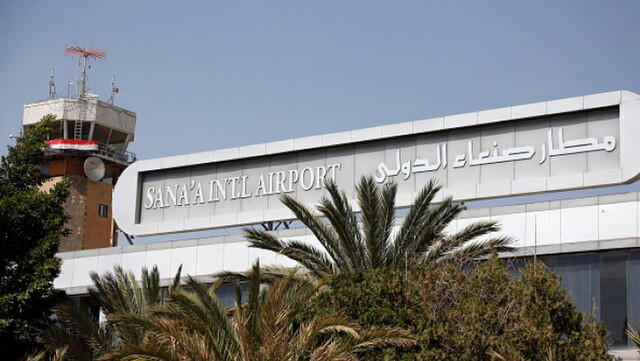The Israeli military launched a wide-ranging series of airstrikes across Yemen on Tuesday, disabling Sanaa International Airport and targeting infrastructure used by the Iran-backed Houthi regime, following a missile strike that landed near Israel's Ben-Gurion Airport over the weekend. The Israel Defense Forces (IDF) confirmed the operation, calling it a direct response to repeated missile and drone attacks by the Houthis.
The IDF said the airport in the Houthi-controlled capital of Sanaa is now "completely disabled." In a statement, the military added, The airport was used by the Houthis "for transferring weapons and operatives, and is regularly operated by the Houthi regime for terror purposes." Civilians were warned in advance to evacuate the area, marking the first time Israel has issued such a warning before striking Houthi targets.
Tuesday's offensive also struck multiple electricity facilities and industrial infrastructure surrounding the capital, including Dhabhan Central Power Station, Haiz Central Power Station, and the al-Imran Cement Factory. According to the IDF, the cement facility served the Houthi regime's military operations, including tunnel construction. The strike ”constitutes a blow to the regime's economy and its military buildup," the IDF stated.
The Houthi-run Al-Masirah TV confirmed the Israeli strikes and reported additional damage to Asr Electricity Station and other civilian infrastructure across Sanaa's southwestern districts. Eyewitnesses reported at least four blasts near the airport.
The Israeli strike followed a joint U.S.-Israel air operation Monday that targeted the Yemeni port of Hodeidah. That strike reportedly killed four people and injured 39, according to Houthi health officials. The IDF said the Hodeidah port and nearby Bajil Cement Factory were targeted for their roles in arms transfers and tunnel construction.
Prime Minister Benjamin Netanyahu vowed retaliation after the Houthis launched a ballistic missile that struck near Israel's primary international gateway, prompting major U.S. and European airlines to suspend flights. "Not evacuating puts you in danger," the IDF warned civilians via a map circulated online before Tuesday's air raid.
Tuesday's operation marked Israel's seventh confirmed airstrike against the Houthis since July 2024, as hostilities escalated with the Iranian proxy militia. According to the IDF, the Houthis have conducted over 400 missile and drone attacks on Israel during the current war, which began with Israel's military campaign in Gaza.
The Houthis have justified their attacks as acts of solidarity with Palestinians. They have also targeted commercial shipping in the Red Sea and attempted to disrupt global navigation routes.
The IDF said, "The Houthi terrorist regime has been operating for the past year and a half under Iranian direction and funding in order to harm Israel and its allies, undermine the regional order, and disrupt global freedom of navigation."
Tuesday's strikes were coordinated with the Trump administration, which has launched over 1,000 airstrikes against Houthi positions in the past year. Israel had previously refrained from direct engagement, hoping U.S. efforts would neutralize the threat.






